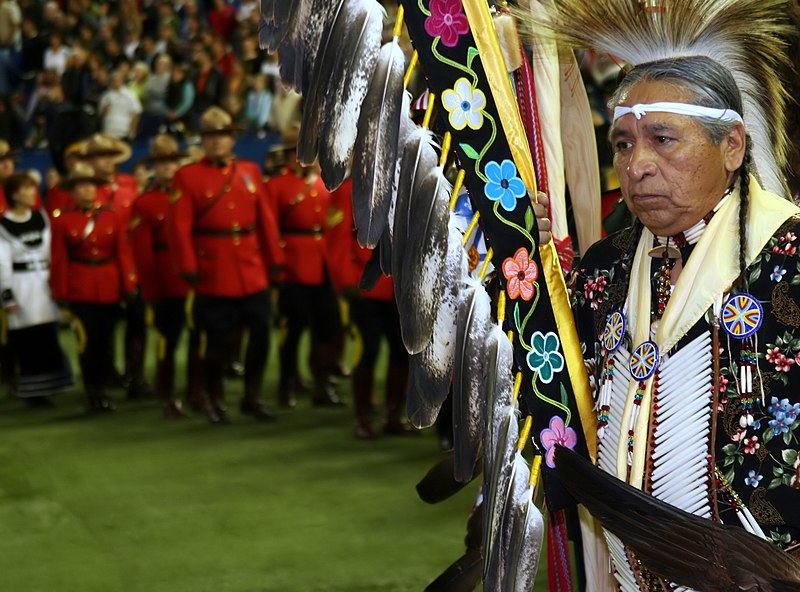
Building bridges: new mandatory Canadian course focuses on indigenous perspectives
The Toronto District School Board (TDSB), Canada’s largest school board, voted 18 to 3 in February to replace the mandatory Grade 11 English course with one titled “Understanding Contemporary First Nations, Métis and Inuit Voices.”
The course focuses on Indigenous writers and explores a range of Indigenous literary, oral, media, and cultural texts. The course is already offered in 29 TDSB schools and will gradually be implemented in a “culturally responsive and trauma-informed” way in all its 110 institutions.
Indigenous student trustee Isaiah Shafqat, who is the driving force behind the initiative, said the move would send a ripple effect across Canada. “Now that every student who graduates from the TDSB will have an understanding of Indigenous history, reality, and culture, I would expect to see a bigger commitment to truth and reconciliation from the younger generation,” he said.
Shafqat, a two-spirit Mi’kmaq and Loon clan student at Kâpapâmahchakwêw Wandering Spirit School, began planning this motion about two years ago. After speaking with Elders, Indigenous students, community members, and TDSB staff, they determined the time was right to push for change.
The reading list for the course includes Richard Wagamese’s Indian Horse, Thomas King’s Green Grass, Running Water, and Tanya Talaga’s Seven Fallen Feathers. Talaga said the course signifies an “incredibly needed change,” adding that “it’s really important that Canadians, no matter how old they are, know the true history of this country.”
Although the course is dedicated to improving English language competencies, it’s also an opportunity to delve into historical and contemporary Indigenous issues. In Shafqat’s experience, teachers give students more space to absorb this difficult part of Canadian history.
“There is a focus on the harsh histories but there’s also a focus on Indigenous joy and resurgence, talking about the success of our people across the country,” explained Shafqat. “Some issues that come up, for example, will be the Mi’kmaq fishing dispute on the east coast or Grassy Narrows – I know in my class last year we talked about the Kanesatake Resistance or Oka Crisis.”
Teachers will be trained to decolonize their practices, center Indigenous pedagogy, and appropriately integrate the 4 Rs of education: relevance, reciprocity, respect, and responsibility. Shafqat finds there is more reciprocity in teaching methods in these classes, where everyone is learning together.
After the Truth and Reconciliation Commission report seven years ago, school boards across Canada began slowly addressing its call to action for “age-appropriate curriculum on residential schools, treaties and Indigenous peoples’ historical and contemporary contributions, a mandatory education requirement for kindergarten to Grade 12 students.”
Next September, Ontario will launch a mandatory social studies curriculum being developed for Grades 1-3, which includes an introduction to the residential school system and the Indigenous relationship to the land. Indigenous issues are already part of the curriculum in Grades 4-8 and 10, including mandatory learning on residential schools in Grades 8 and 10.
Indigenous content in other provinces can vary, depending on what material teachers choose. Before the Quebec government budgeted $19.4 million in November 2021 to support reconciliation in education, the First Nations Education Council (FNEC) struggled to keep up with teacher requests about Indigenous issues.
Most of the funding is allocated to updating content, aligning history and culture curricula with the truths of First Nations in the school’s region. Along with $4 million to update books and teaching software to reflect modern Indigenous realities, the FNEC helped overhaul outdated teacher training.
The focus on indigenous course is a valuable and necessary addition to any university’s curriculum. Through the course, students can gain a deeper understanding of Indigenous peoples’ histories, cultures, and experiences and develop the critical thinking and analytical skills needed to engage with the issues facing Indigenous communities today.
The course’s focus on decolonization, reconciliation, and Indigenous knowledge systems can contribute to creating a more just and equitable society that recognizes and respects indigenous peoples’ rights and perspectives.
The Indigenous course’s benefits extend beyond the classroom, as it can help foster meaningful relationships between Indigenous and non-Indigenous peoples and promote greater understanding and empathy across cultural divides. It is important to recognize the ongoing legacy of colonialism and systemic discrimination that continues to affect Indigenous peoples today, and this course is an important step towards promoting reconciliation and addressing these injustices.
It is crucial that universities continue to offer and expand Indigenous courses and programs, ensuring that all students have the opportunity to learn about and engage with Indigenous peoples’ histories, cultures, and perspectives.
This will not only contribute to creating a more just and equitable society but also enrich the educational experiences of all students and prepare them to be engaged and informed global citizens.

